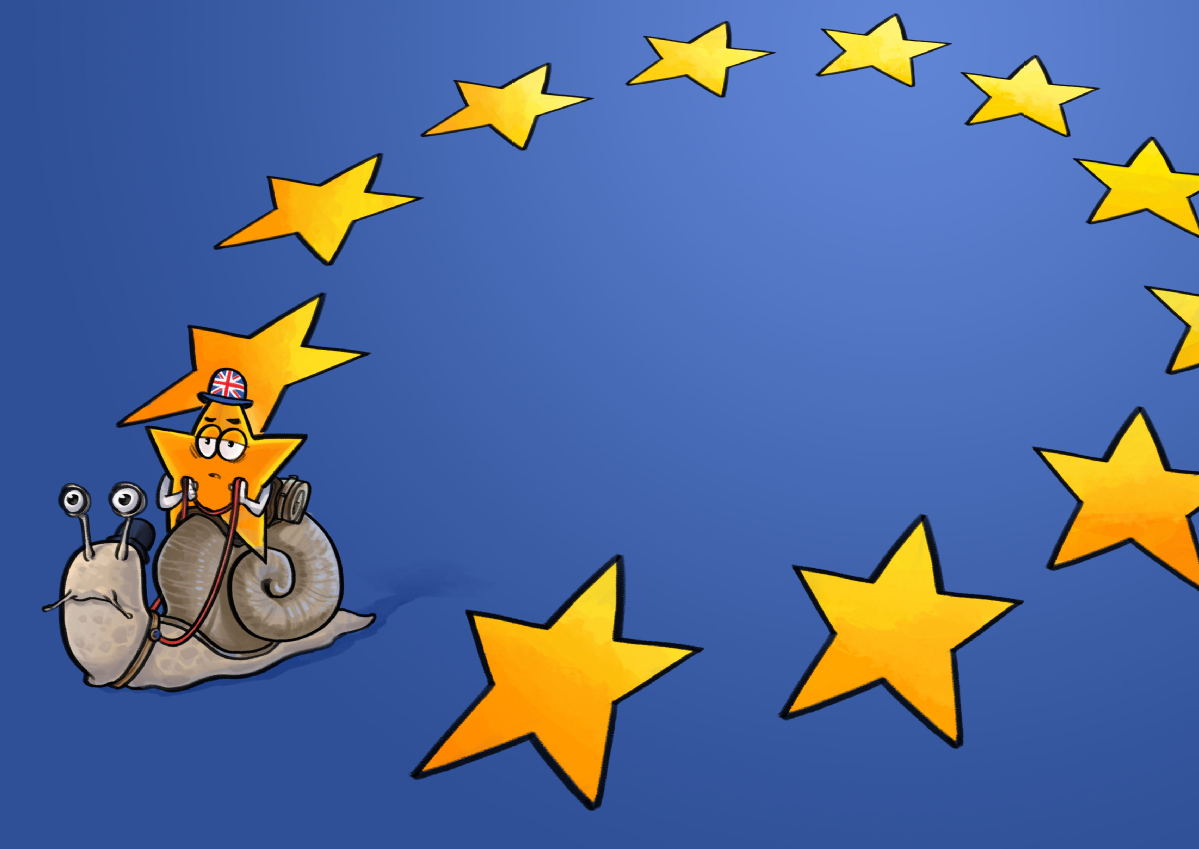UK reluctantly confirms it will take part in EU elections
By Earle Gale in London | China Daily Global | Updated: 2019-05-08 23:31

The British government has reluctantly confirmed the nation will take part in the upcoming European Union elections, despite the clock ticking down to the United Kingdom exiting the bloc.
David Lidington, Prime Minister Theresa May's de facto deputy, told the BBC the government still hopes to nail down a Brexit deal that will allow the UK to leave the EU imminently. But he conceded that, having missed a May 7 deadline, the UK now has a legal obligation to participate in the May 23 elections through which political representatives from 28 EU nations will be selected for the European Parliament.
May's government had earlier said it hoped to win support from members of the UK Parliament for a compromise Brexit withdrawal deal that would have allowed the nation to leave the bloc and avoid taking part in the elections.
Lidington said "regrettably" the window of opportunity had passed.
"We very much hoped that we would be able to get our exit sorted … so that those elections did not have to take place," he said, adding that the government wants any delay to the UK's exit from the bloc to be "as short as possible".
The UK chose to leave the EU in a referendum in 2016 and the prime minister subsequently negotiated a divorce deal with the bloc that Brussels signed off on in November 2018. However, the British Parliament has since been bitterly divided on that proposed deal, with many MPs complaining it aligns the UK too closely with the bloc after their separation, and others lamenting that it leaves them too far apart.
With the proposed deal unsupported by the British Parliament, May and her team have been negotiating with the opposition Labour Party in the hope of agreeing a compromise deal that MPs can get behind.
In the absence of an agreement, the original March 29 exit deadline has been put back to Oct 31.
Lidington said the prime minister "deeply regrets" the UK's failure to leave as planned on March 29 and that she recognizes people are frustrated that the nation will now have to participate in the EU elections, which are likely to cost around 150 million pounds ($195 million).
As for negotiations between the Labour Party and the government, Labour's shadow business secretary, Rebecca Long Bailey, told reporters that talks on Tuesday were "very robust" but that a compromise Brexit deal would not be found without the government giving ground. Downing Street said the talks were "constructive and detailed" and would continue on Wednesday.
The Guardian newspaper, meanwhile, says the Brexit issue has, during the past two years, contributed to Britain's National Health Service losing almost 5,000 nurses and midwives from EU nations outside the UK, the so-called EU 27.
The paper said the number of EU 27 nurses and midwives working in the NHS plummeted from 38,024 in March 2017 to 33,035 this March, a fall of 4,989, or some 13 percent. The data was provided by the Nursing and Midwifery Council, which said 51 percent of the EU 27 nurses and midwives who left the NHS said they did so because of Brexit.
Gill Walton, chief executive of the Royal College of Midwives, told the paper: "Unfortunately, over the last year, just 33 midwives arrived from elsewhere in the EU to work as midwives here in the UK, and we used to count them in their hundreds. UK maternity services are already stretched and short-staffed, but Brexit threatens to make things even worse."
Sara Gorton, head of health at the public-sector trade union Unison, added: "The referendum result has made many EU nationals feel unwelcome. It's no surprise nurses and midwives think they'll be better off elsewhere."
























